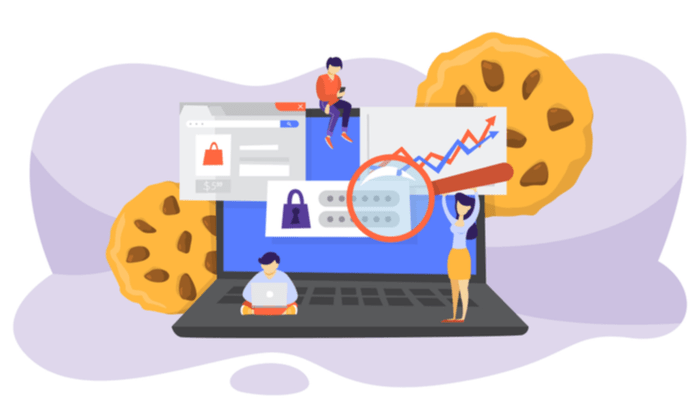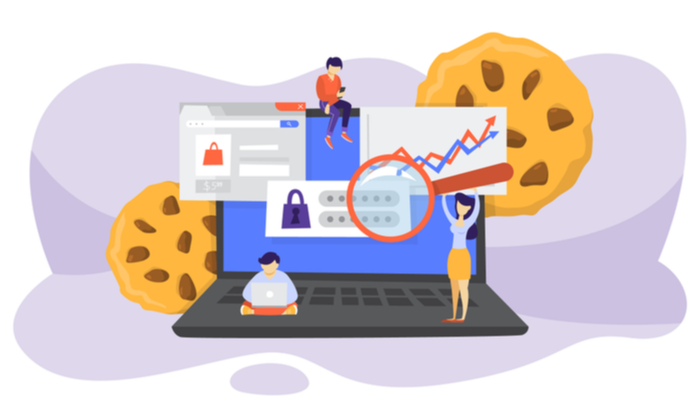
We’’ re all accustomed to advertisements following us around the web. Is it a little scary? It can be, however lots of people compose it off as a part of utilizing the web.
However, the world is altering. With a higher focus on personal privacy, the method individualized advertisements follow you around the web might be, too. The big wheel in the middle of all this Google, revealing in 2020 that by 2022, it would end making use of third-party cookies (what marketers utilize to track you) on its internet browser, Chrome.
Ads are an essential part of how the web works, so the mission to discover a brand-new method to supply users with customized advertisements started and Unified ID 2.0 has actually developed itself as a front runner.
.What Is Unified ID 2.0?
Unified ID 2.0 is a proposed replacement for cookie tracking on the web. It intends to include an additional layer to customer personal privacy while assisting in individualized advertisements throughout the web.
Essentially, we’’ re discussing how business track your information , and as you can picture, this is a complex concern.
To comprehend Unified ID 2.0, it’’ s best to inform the story from the start, and take a look at how the idea happened.
.What Are Cookies?
To comprehend Unified ID 2.0, you’’ ve got to very first comprehend cookies .
When you check out a site, it sets up a little piece of code called a cookie in your web internet browser. This enables the site to acknowledge you the next time you check out, assisting it to individualize your experience by, for instance, immediately logging you into your account.
It is called a first-party cookie, and it appears like a beneficial tool?
There are absolutely advantages to cookies, however there are likewise aspects individuals are less delighted about.
When you check out a site, you’’ re likewise most likely gathering third-party cookies in your web browser. As the name recommends, these are from a third-party business, generally a marketer. These cookies can track you throughout the web, learning more about your routines, and enabling the marketer to target you with more appropriate advertisements.
Again, there are some advantages to this, however it’’ s likewise raising personal privacy issues.
.Concerns About Privacy.
Cookies are absolutely nothing brand-new; they’’ ve been a typical function on the web because 1994. The world has actually altered an excellent offer in that time (particularly the method we connect with the web), and personal privacy has actually ended up being a significant issue .
The method we connect with the web has actually progressed so rapidly that guideline has had a hard time to maintain. Governments are working to carry out limitations to keep individuals safe on the web, and the very same chooses the huge tech business.
Huge business like Google, Microsoft, and Facebook now hold big power over the method we engage with details, however with that comes a great deal of obligation. Customers are ending up being more knowledgeable about concerns such as personal privacy, and they’’ re anticipating these organizations to make modifications.
.Why Did We Need Cookies in the First Place?
Websites intend to use worth to their users. In the earlier days of the web, however, they had no chance of determining what that audience appeared like and how they engaged with the website.
This details is essential to offer users with premium, important info , so they began gathering that information. It likewise enabled marketers to comprehend who website visitors are and what else they do on the web.
The third-party cookies on your web browser permit marketers to paint a photo of your customer practices and target you with more appropriate advertisements. This is why when you search the web, the advertisements you see tend to be rather precise to your requires and desires.
For example, you search for a locket for your enjoyed one as soon as, and the image listed below programs you what follows you around the web for the coming months and weeks.
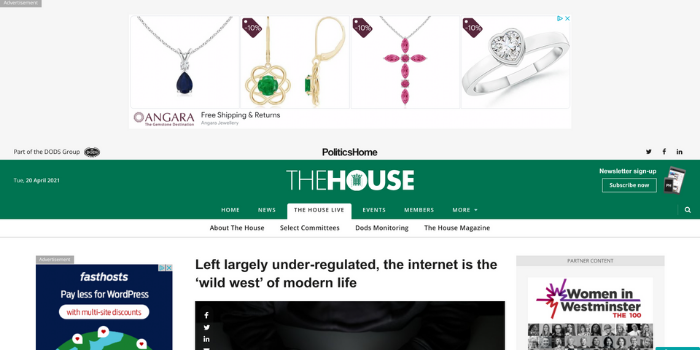
On the more ominous side, this permits 3rd parties to track your surfing, which naturally affects your personal privacy. It likewise permits publishers to monetize their sites to money the premium material you delight in taking in.
Clearly, a balance should be discovered, and Unified ID 2.0 is one proposed service.
.Google’’ s Big Announcement: The End of Third-Party Cookies.
Privacy and cookies have actually been discussed for a very long time. Maybe pleased with the status quo, marketers and publishers weren’’ t always braced for huge modifications.
That was up until Google’’ s huge statement in 2020 that in 2022 it would begin to stop business tracking users throughout the web through its web browser Chrome.
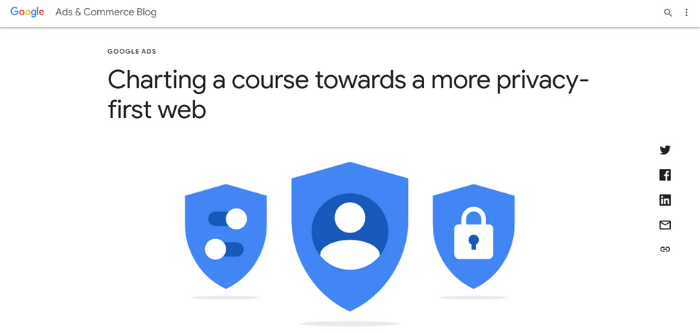
When a business as huge as Google talks, individuals listen, and this instantly drawn in publishers and marketers’ ’ attention. Chrome has actually cornered 69.28 percent of the web browser market share, so this suggested cookies would be altering for a big variety of users worldwide.
With unpredictability around what would change cookies, and how marketing would deal with the platform moving forward, various propositions have actually been forwarded, and Unified ID 2.0 is among the leaders.
.Keeping the Internet Free.
The modifications in Google’’ s policy should use higher levels of personal privacy for customers, so where’’ s the catch?
.
One issue with these modifications is that we see the web as a complimentary resource. We have immediate, open door to any details we might ever desire. It costs publishers cash to produce those resources.
Many publishers depend on advertisement earnings to money the high-value info they supply customers totally free. If advertisement yields drop considerably as we move far from cookies, websites might need to alter their company structure, possibly restricting the quantity of complimentary info on the web (Some websites, like this one, utilize a various design and won’’ t be affected. I wear’’ t count on advertisements to drive profits, however lots of publishers do).
.
This implies what follows cookies is an essential choice that impacts lots of people. Driven by some huge names in the marketing market , Unified ID 2.0 is one proposition that may strike the balance in between personal privacy while maintaining the worth exchange.
.What’’ s the Difference Between Unified ID 2.0 and Cookies?
Cookies work however plainly doing not have when it pertains to personal privacy, so how does Unified ID 2.0 alter this?
Unified ID 2.0 is viewed as the next development in cookies. It gathers the info marketers require, however it puts the user at the heart of the decision-making procedure. Instead of utilizing third-party cookies to track a user, sites utilize the user’’ s anonymized e-mail address to determine when they visit.
It may seem like cookies in all however name, however it intends to enhance them in 3 essential methods:
.Anonymization: With Unified ID 2.0, your identity is anonymized utilizing a special identifier that can not be traced back to your e-mail or any kind of ID. Your information is not traced back to you particularly; it’’ s traced back to your anonymized identifier.Control over personal privacy: New legislation has actually provided users a little more control over their personal privacy recently. You discover a lot more sites asking you for permission to track cookies when you search the web. Continuously handling your choices for every site you go to is a trouble. Unified ID 2.0 permits you to manage your choices from one single login. Openness: One element that the developers of Unified ID 2.0 highlight is describing the worth of tracking. The brand-new platform intends to offer customers more info and reveal the relationship in between tracking and the material they take in on the totally free web. It’’ s not like with cookies where we ’ re simply anticipated to accept it; you’’ re provided the info to make a notified choice. 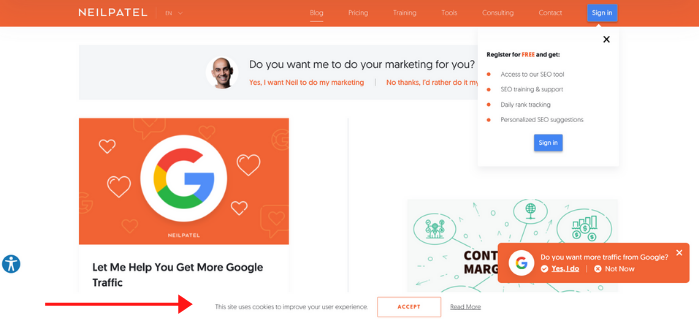
One of the difficulties for Unified ID 2.0 will likely be adoption rates.
Whereas cookies were practically universal, the success of Unified ID 2.0 counts on marketers, publishers, and customers all getting on board.
.Why Is Unified ID 2.0 Replacing Cookies?
One of the concerns with cookies is they can track users without their approval. Personal privacy has actually ended up being a huge concern over the last few years, and federal governments are remembering.
In 2018, the European Union presented the General Data Protection Regulation , which describes guidelines for how information might be gathered. This had effects for marketers and publishers all over the world.
This type of intervention was bound to get Google’’ s attention, and by altering the method Chrome utilizes cookies, it’’ s reacting to governmental and public issues about personal privacy.
It boils down to a basic concern: how do you feel about organizations tracking your every move the web?
For many people, it makes them feel unpleasant (Mozilla, which has actually currently obstructed third-party cookies on its web browser obstructs over 10 billion trackers a day ), even if it may lead to a much better experience.
Unified ID 2.0 might permit individuals to take control of the balance themselves. Utilizing a combined e-mail login, they can manage their choices, customizing their settings to how they wish to engage with the web.
Rather than having actually cookies required upon them, or needing to set their choices for each website they check out, Unified ID 2.0 will permit customers to set their personal privacy choices through a central login.
Essentially, it needs to put the choices in the customers’ ’ hands.
. The Effects of Unified ID 2.0 on Advertisement Personalization.
Nobody likes seeing advertisements. Integrating marketing into your material is an art, and there are a lot of sites that stop working to do this, reducing the user experience and rendering them practically unreadable.
However, what’’ s even worse than seeing a lot of advertisements, is seeing advertisements that have definitely no importance.
The abolition of third-party cookies threatens to effect advertisement customization in a huge method, and this might have unfavorable repercussions for everybody included. Users will see less pertinent advertisements, minimizing the user experience, and publishers will make less income, requiring them to think about alternative kinds of moneying their material productions .
Unified ID 2.0 is a cooperation in between huge marketing business that are working to mix personal privacy with existing levels of advertisement customization. Advertisements are just beneficial if you get them in front of the best individuals, so these business are striving to discover brand-new methods of continuing to supply tailored advertisements to customers.
Without third-party cookies, this may look rather various, however it’’ s in everybody ’ s interests to discover an approach that works. This may take a while to ideal, and Google will have a huge say in what ultimately changes third-party cookies, however Unified ID 2.0 is definitely among the leading choices.
.Conclusion.
The end of third-party cookies was driven by the general public’’ s want higher personal privacy , which is ending up being a growing issue. Google isn’’ t the very first business to eliminate third-party cookies, however with such a substantial share of the marketplace, it will have a far-flung effect on digital marketing.
Personalized advertisements are a substantial part of how the web works, enabling publishers to fund the high-value material they use totally free . This might have long-reaching effects if modifications to third-party cookies imply advertisement customization is no longer efficient.
Unified ID 2.0 is one proposition that intends to strike a balance in between enhanced personal privacy for customers while keeping advertisements as an important profits source for publishers.
It stays to be seen what follows cookies, however the outcomes might make the web appearance really various. If you desire assistance browsing digital marketing in the age of personal privacy, let our firm understand . Our group of professionals is here to assist!
What are your ideas on Unified ID 2.0?
Read more: feedproxy.google.com

